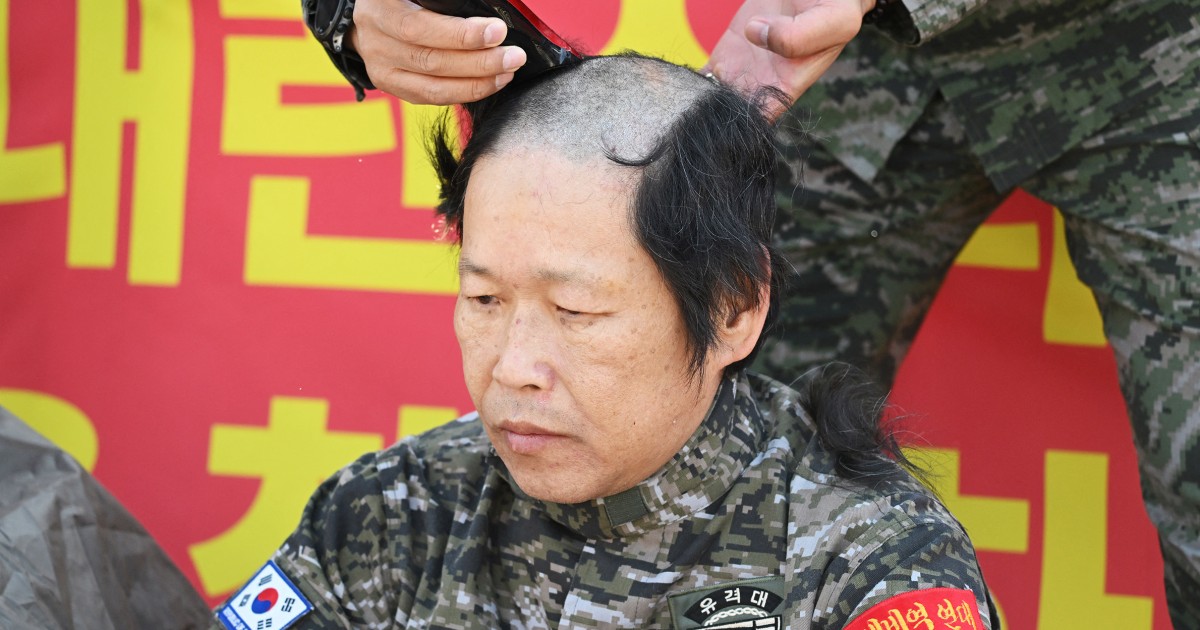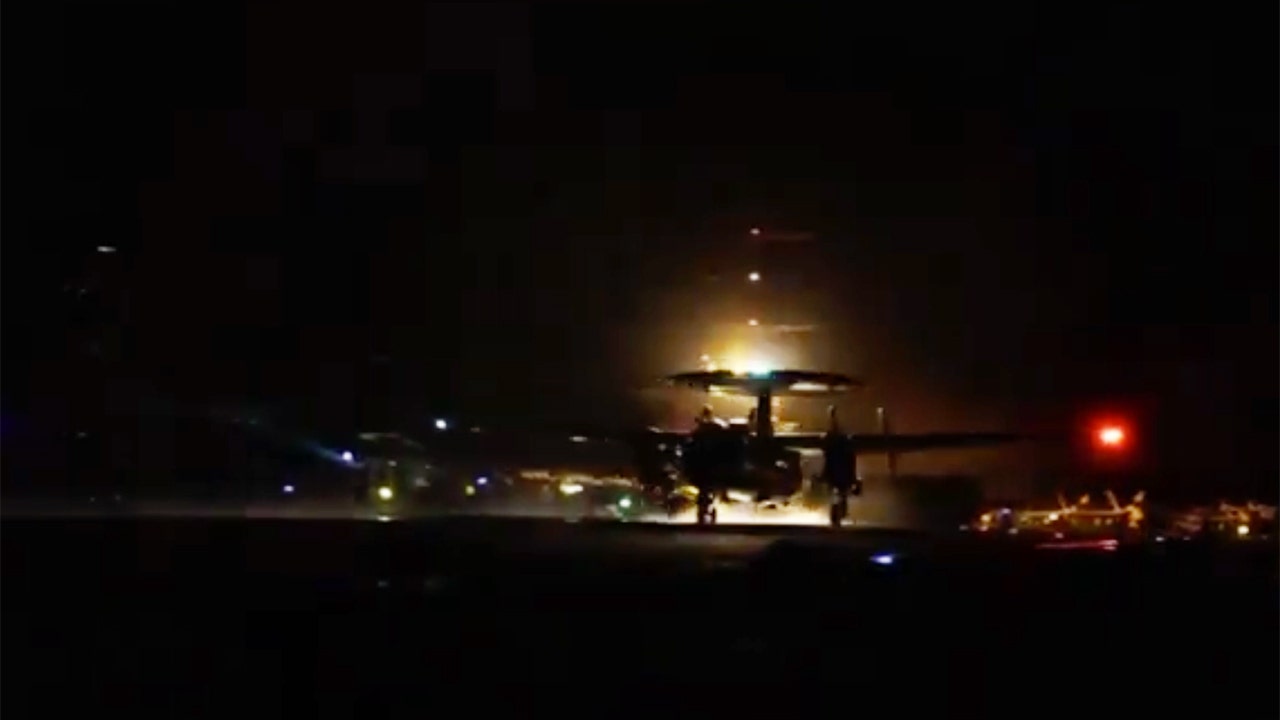World
South Korean president fights impeachment as he’s investigated for insurrection

SEOUL, South Korea — South Korean police and prosecutors on Thursday opened separate insurrection investigations against President Yoon Suk Yeol over his failed attempt to impose martial law in the key U.S. ally as his party said it opposed a planned vote to impeach him.
The timing of the vote was announced as Yoon accepted the resignation of his defense minister, Kim Yong-hyun, who played a key role in the chaotic six-hour period of martial law that began late Tuesday local time and ended by Wednesday morning.
Choi Byung-hyuk, a retired four-star army general who is currently the South Korean ambassador to Saudi Arabia, was named as Kim’s successor.
“He is a trusted member of the military and a man of principle,” Chung Jin-seok, Yoon’s chief of staff, told reporters.
Kim had tendered his resignation Wednesday, saying all responsibility for the debacle “lies with me alone.”
“All actions carried out by all military soldiers regarding the Emergency Martial Law were following my orders and directives, and so I bear the full responsibility for them,” he said in a statement.
He did not directly address whether the emergency martial law was his idea, as opposition lawmakers and South Korean media have alleged.
The National Office of Investigation said Thursday that it had ordered an overseas travel ban for Kim, who might also face insurrection charges, after opposition lawmakers suggested he might try to flee the country.
Yoon’s office said Wednesday that his chief of staff and all senior presidential secretaries had also tendered their resignations. But it defended his declaration of martial law, South Korea’s first since 1980, as necessary in the face of an impasse with opposition lawmakers that Yoon said had paralyzed the government.
Under the martial law declaration, all political activity was banned and media was censored, drawing instant opposition from a public that lived for decades under military-authoritarian rule before South Korea transitioned into a vibrant democracy and the world’s 10th-largest economy.
Yoon, 63, who once served as the country’s chief prosecutor, rescinded the order after lawmakers defied a security cordon to enter the National Assembly in Seoul, the South Korean capital, where they voted unanimously to reject it. Protesters also arrived at the legislature, where some scuffled with security forces.
He has not made any public appearances since announcing the order in a surprise late-night TV address on Tuesday.
Lifting the order did little to dispel public shock and anger in the country of 50 million people. On Wednesday night, protesters in downtown Seoul held a candlelight vigil and marched against Yoon, calling on him to resign.
Protests continued on Thursday, including a marine veteran and his wife who shaved their heads in protest outside the presidential office, a South Korean tradition. There were also some rallies by Yoon’s supporters.
Protests against Yoon, and the calls for him to step down, could grow as people get over the initial shock of the events, said Jean H. Lee, an adjunct fellow and Northeast Asia expert at the East-West Center research organization in Honolulu.
“People were stunned,” she said. “But I think that’s turning to real disappointment and anger.”
“It’s hard for me to see how he can come back from this,” Lee added.

An uncertain vote
Gen. Park Ahn-soo, who as army chief of staff was named martial law commander, told lawmakers that he learned about the order from Yoon’s televised announcement. He said that while he signed and issued the proclamation of martial law, he did not have the expertise to assess its legality and had suggested to the defense minister that it be further reviewed.
“I have never had any intention of turning arms against the people of this nation,” he said, adding that he was focused on setting up the operations room and did not issue or oversee the order to send troops to the National Assembly.
Park said he had offered his resignation on Wednesday, though Yoon did not accept it citing the need for stable management of the military.
Kim Seon-ho, the vice minister of defense, said it was his boss, Kim Yong-hyun, who ordered the deployment of troops. The vice minister, who said he also learned about the order from the news, said he disagreed with it and had expressed his objection to mobilizing military personnel.
On Thursday, he expressed his “deep regret” to the public, saying he felt “devastated.”
“As vice minister of national defense, I acknowledge that I failed to identify and prevent these actions as they unfolded. I take full responsibility and will ensure accountability moving forward,” he said, adding that the soldiers at the National Assembly were not carrying live ammunition.
With the removal of his defense minister, Yoon appears to be “attempting to construct a narrative that takes it out of his hands,” said Rob York, director for regional affairs at Pacific Forum, a foreign policy research institute in Honolulu.
But the declaration “was ultimately his call, and the Korean public is not inclined to give him the benefit of the doubt,” he said.
Yoon was already unpopular, York said — a Gallup Korea poll last week found his approval rating at 19% — “and I suspect his popularity ratings are going to plummet further, possibly into the single digits.”
The main opposition Democratic Party said Thursday that lawmakers would vote on the Yoon impeachment motion on Saturday around 7 p.m. (5 a.m. ET). It was unclear whether lawmakers from Yoon’s People Power Party, or PPP, would vote against the motion or simply not show up for the vote.
A total of 191 lawmakers representing six opposition parties, plus one independent lawmaker, submitted articles of impeachment against Yoon on Wednesday. It takes a two-thirds majority vote in the unicameral National Assembly for the motion to pass.
Though PPP leaders repudiated Yoon’s martial law declaration and have asked him to leave the party, they said the party opposed the impeachment motion. The opposition bloc holds 192 seats, just under two-thirds of the 300-member legislature, meaning the motion could fail unless several PPP lawmakers break with their party and support it.

Opposition lawmakers say that if the motion fails to pass the first time, they will keep trying until Yoon is impeached. If the motion is passed, the Constitutional Court would then hold a trial to determine whether to confirm the impeachment, with a decision required within 180 days.
Though Yoon would remain at the presidential residence, his powers would be temporarily handed to Prime Minister Han Duck-soo until the court delivered its ruling.
U.S. Deputy Secretary of State Kurt Campbell said Wednesday that Yoon had “badly misjudged” his decision to declare martial law.
He said the fact that progressives and conservatives swiftly united in opposition to the order despite deep political divisions was a testament to the strength of South Korean democracy.
“This is a powerful symbol of the fact that people were prepared to come out and make clear that this was a deeply illegitimate process,” he said at an event in Washington organized by the Aspen Strategy Forum, according to Reuters.
Antony Blinken, the U.S. secretary of state, acknowledged that the Biden administration did not know about Yoon’s announcement ahead of time but pushed back on the idea that there was an intelligence failure.
“We are certainly not routinely informed of every decision that any partner may be making anywhere around the world at any given time,” he said Wednesday in an interview with Reuters.
“What’s important now is to see this process play out peacefully and according to the constitution and the rule of law,” he added.
Stella Kim reported from Seoul and Jennifer Jett from Hong Kong.










